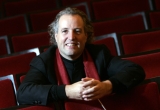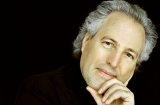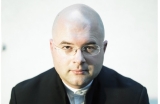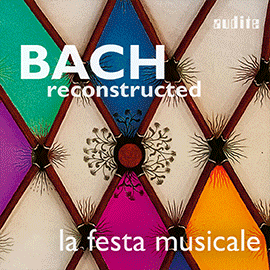Fangen wir vielleicht ganz vorne an. Wie kamen Sie zum Schlagzeug?
Im Kindergarten war ich in einer Xylophon-Gruppe und spielte auf einem kleinen Xylophon des Orff-Schulwerks. Das hat mir unglaublich viel Spaß gemacht. Und weil meine Großeltern auch beide Musiker sind, genau wie mein Onkel, war da schon eine Verbindung vorhanden. Read More →
Mr. Nelsons, Gewandhauskapellmeister, what do you think about this title? That´s pretty old-fashioned, isn´t it?
I have several emotions and exciting feelings about this title. On the one hand, it´s a historical title and it´s a great honor to have such a title with a great tradition from so many years ago. On the other hand, the title is quite contemporary at the same time, because the Gewandhauskapellmeister has always been influencing and participating in a lot of commissions, a lot of new works. Read More →
You came back to La Scala after a 20 years gap (not counting the very recent concerts with the Academy Orchestra). A programme very much connected to your musical culture, but not at all to Italian tradition, marked this comeback. How did it work?
Actually quite well, because these musicians are technically very good. Moreover, for this music you need to be a musician with taste, with good technique and a feeling for rhythm. You need a lot of rubato, many stylistic elements that la Scala orchestra is able to give. Read More →
How and when this project devoted to the Brahms Symphonies was born?
In May 2013 in Munich, when I was setting up our future collaboration with our new Music Director Markus Poschner. Both we wanted to begin with a great project, articulated over several concerts, to be realized during the opening season of the LAC, Lugano’s new concert hall. Read More →
Line Adam, was bedeutet es, heute Komponistin zu sein? Haben sich die Herausforderungen nach vielen Jahrhunderten Musik eigentlich verändert?
Ich denke, die eigentlichen Herausforderungen sind noch immer die gleichen. Jeder Komponist, egal ob er vor dreihundert Jahren gelebt hat oder eben heute lebt, hat primär das Bedürfnis, sich musikalisch auszudrücken. Wie er das tut, welchen Weg er wählt, das ist ihm dann überlassen. Read More →
Among the earliest publications were collections of Haydn’s string quartets, and of Mozart’s quartets and quintets. With a 14-volume set of the clavier works of J. S. Bach (then a nearly forgotten name), the company undertook one of publishing history’s earliest ‘complete edition’ projects. As early as 1802, the firm also succeeded in acquiring a set of piano and chamber works from Beethoven, together with his First Symphony and the B-flat major Piano Concerto. Read More →
It was your very first encounter with the score of The Epic of Gilgamesh. Was it just an assignment or was it a joy?
I have been familiarising myself with Czech music step by step. I received my education in Vienna, which involves learning the old classics – by Mozart, Beethoven, Schubert, Brahms, Mahler, Bruckner … Then Dvorak appeared … My first contact with Czech music was through Antonin Dvorak, followed by Bedrich Smetana and Leos Janacek. And then Bohuslav Martinu. Read More →
Barbara Hannigan, auf dem Programm, mit dem Sie momentan auf Tournee sind, stehen Werke von Luigi Nono, Arnold Schönberg, Alban Berg und George Gershwin. Und bei allen steht eine Frauenfigur im Mittelpunkt.
In der Tat dreht sich das Programm um vier Frauengestalten, wobei allerdings für mich Lulu die Zentralfigur ist, der sogenannte dramatische Kern, auf den sich alle anderen Werke beziehen, resp. von dem sie inspiriert werden. Read More →
Luc Grethen, Ihr Kompositionsverzeichnis reicht mehr als dreißig Jahre zurück. Zumindest von der Anzahl der Kompositionen her betrachtet waren die letzten 15 Jahre deutlich produktiver als die frühen Jahre. Wie ist das zu erklären, mussten Sie erst Ihren Stil erarbeiten?
Meinen persönlichen Stil habe ich Anfang 2000 entwickelt und von dem Moment an ging das Komponieren viel einfacher und schneller von Hand. Dazu kommt, dass vor dieser Zeit Familie und Arbeit absolute Priorität hatten, so dass wenig Zeit zum Komponieren blieb. Read More →
Herr Krumpöck, warum gerade Schubert?
Erstens gibt es da einen natürlichen Bezug zu meiner Heimat und zweitens bin ich der Meinung, dass es noch immer nicht genug Wertschätzung für die Symphonien von Franz Schubert gibt. Darüber hinaus liebe ich es zyklisch zu arbeiten, weil ein Werk die interpretatorische Intensität des zweiten schärft. Read More →




























